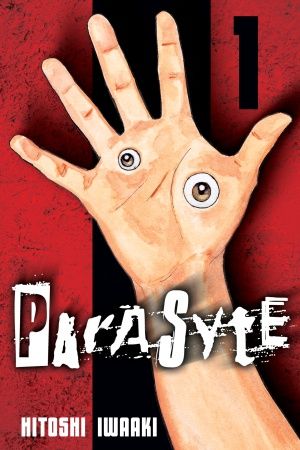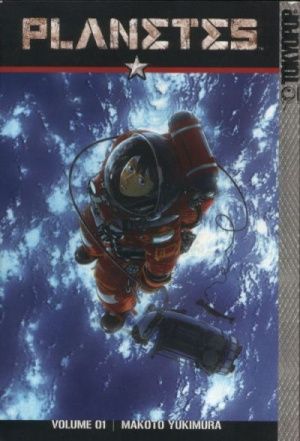In last week's column, I tried to make a case for the possibilities of adult manga readership in the U.S. and I was pleased to see that my argument was generally well received by this blog's readers. While there is some inherent tension in enthusiastically recommending Japanese comics on a U.S. comic book blog site, John Thomas cheerfully crushes it, noting, "Manga and [U.S.] comics don't need to be like Republicans vs Democrats. You CAN enjoy both (I do!) without betraying the other."
Importantly, Matt Thorn and Chloe F both pointed out that I was incorrect about manga readership in Japan declining in any significant way - that while the numbers were not at as great as they were in the 1990's, manga sales continue to hold steady. The perception that manga's readership is not-so-slowly-eroding in Japan is one I accepted without second thought and I appreciate the gentle correction I received from these two.
No one seemed to contest my argument that if manga publishers in the U.S. wish to thrive they need to develop its readership beyond the teen market. There are an estimated 33 manga volumes coming out a week in 2008 (can anyone confirm? I'm a little bit afraid of this number, it just screams "GLUT!" to me and that is not a word I want to hear associated with the manga market in 2008). What in the world are we, and by "we" I suppose I mean the chain bookstores, going to do with all that manga? 33 volumes a week is great number for a manga addict like me who can work at a local comic book store for credit, but what about everyone else? While I hope that many of those manga titles will find their correct market, as a lowly foot soldier at my local comic book store I can say that my manga customers often buy titles published a few years ago that they are only discovering *now.*
I can't claim to know for sure how U.S. publishers will be capture that teen market as it ages but today's column attempts to highlight manga titles that could help stem the stereotype that manga (or comics in general) are for kids. And, of course, this is an attempt to entice American comic book readers, conditioned to accept certain kinds of narratives and art styles, to potentially discover manga titles that speaks to their tastes. I believe the titles I offer here would be more to their liking than the shojo and shonen manga titles that tend to predominate the shelves. (Yes, you! You there! You can save me from "conventional wisdom" that there is manga glut in 2008!)
The following recommendations are highly subjective - I'm simply going to explain what I happen to like and why. When I feel my own powers of communication fail to adequately explain the sheer awesomeness of a particular title, I might reference the recommendations kindly shared by commentators on my last post. Thanks to everyone, for sharing your favorites - it might my job this week (& next week) more challenging, but in a good way. I think.
Due to time constraints this week I'm going to focus on science fiction manga and expand out to other genres next week (yup, I'm stretching out this topic for three weeks!)
Genre: Science-Fiction
Eden: It's an Endless World
Author Hiroki Endo creates a post-apocalyptic world in which a virus has killed off a significant portion of the population. Although the title's plot is overly complicated --different military and crime organizations vie for world domination or something -- as far as I'm concerned the story is really a coming-of-age narrative about a boy named Elijah, whose father happens to control one of the largest drug cartels in South America. Elijah grows up in a world in which evil happens both intentionally and often simply by default, and we are invited to watch a 15 year old purposefully strip away his own innocence in order to project enough strength to protect what he values most in the world (on the surface he tries to protect loved ones, but more often he is actually protecting his own sense of right and wrong).
The title is more than simply "adult," as in "mature," it is actually quite graphic, as Endo mediates upon the ways in which human beings survive their own nature (and sex and violence seem to be his primary vehicles to represent that meditation), more than he actually explores the concept of "survival" in a world decimated by a virus that acts without apparent cause or reason. The art is harshly realistic and beautiful in its clarity, often achieving both effects simultaneously.
Published by: Darkhorse
Released: 9 volumes out of 17 (still on-going in Japan)
ES (Eternal Sabbath)
Fuyumi Soryo, a popular shojo mangaka, creates an emotionally driven science-fiction thriller, as the "ES" in the title stands for two genetically engineered better-than-human clones with extraordinary powers of the mind (i.e. psychic ability) who have escaped the scientists who created them. Post-escape these clones find themselves alone in a human world they don't understand and eventually battle each other over their place in relation to human beings. The two clones stand in for the possibilities of the human race - they are do not reductively equal "good" and "evil" so much as they come to stand if in for the potential to love and learn versus the potential to simply hate. Complete at eight volumes (the eighth volume due soon from Del Rey), ES excels in narrative and art, as Soryo takes the lessons she learned as a shojo mangaka - the ability to express human emotion and experience - and applies them to the more detail-oriented genre of science fiction.
Significantly, although ES is nominally about the epic battle for humanity between two "male" clones, Soryo's real protagonist is neurologist Mine Kujyou, a cold intellect who relies primarily upon her powers of reason to guide her through life. Through her interaction with these extraordinary individuals and the people they influence -- for good and for ill -- she finds must make sense of their humanity and her own.
Published by Del Rey
Released: 7 out of 8 volumes
Parasyte
Parasyte isn't just about regular old parasites - as the unusual spelling the title of the manga indicates -- but about creepy sentient alien parasites that take over the human body. The narrative of this title actually focuses on an alien-body-snatch-gone-wrong, as our protagonist, Shinichi, manages to stop the progress of his parasite before it reaches his brain. Unfortunately, now he's got to share his body - specifically his left arm as the image above hints at -- with this invader and learn to share one vessel with two beings with conflicting values, needs, and desires. The wonder of this title is how well it envisions this strange new life for Shinichi and his new companion (called "Migi") and the dangers that come with this new existence - many of those dangers coming from more successful alien parasites which wear their victims' faces and tend to wreak havoc, with occasionally eating human beings and all.
Often shocking and surprising, this title is being released by Del Rey (after Tokyopop let the license lapse) into volumes containing almost 300 pages of weird, creepy, spectacularly strange goodness.
Published by Del Rey
Two volumes released (finished in Japan, will eventually be released as 8 volumes)
Planetes
Planetes was one of the first manga I read but I still remember being impressed by its mature storytelling and art. Realistically depicting space travel in the not-so-distant future, the title follows "garbage collectors" in space, but in Planetes "space" is always just a supporting character to the main characters' lives, dreams, hopes, and experiences. The central character is a young man hoping to become a great space explorer, meanwhile biding his time as a trashman in space, hoping to join a historically significant and dangerous expedition to Jupiter.
I recall the art is excellent (I sadly lack access to copies of the manga as I write this) but most importantly I remembered giving a damn about these so-called "garbage collectors" and their families, romances, setbacks and, in general, their everyday lives.
Published by Tokyopop
Complete at 5 volumes





